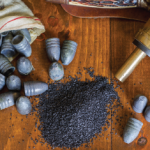The Nobel Peace Prize is one of the most prestigious awards in the world because it recognizes individuals and organizations that promote the causes of peace and human rights. In 1991, Aung San Suu Kyi received this prize for her courageous work in advancing democracy in the Republic of Myanmar. Because of her leadership of the democracy movement in Myanmar, the military regime that governs that country has gone to great lengths to gag her. Indeed, she has been under house arrest for most of the last two decades since she received the Peace Prize. An outpouring of support for Aung San Suu Kyi and demands for her freedom by human rights advocates and Western governments have sadly been to no avail.
Another Nobel Peace Prize Winner has suffered a similar fate. Shirin Ebadi, a lawyer and former judge, is an outspoken supporter of the legal rights of women and children in Iran. She received the prize in 2003. Since then, Ebadi has received death threats for her work on behalf of human rights and has even suffered the confiscation of her Nobel Peace Prize medal by the government, a charge denied by the Iranian government.
Official and unofficial American support of these human rights leaders has been consistent with our highest principles. Thus, it is surprising that the council in charge of medical education in the United States, the Accreditation Council for Continuing Medical Education (ACCME), would act like a totalitarian government to stifle the speech of Nobel award recipients. By the rules of the ACCME, employees of pharmaceutical companies and device manufacturers are not permitted to participate as speakers in continuing medical education events. These rules are as baffling as they are exasperating, but they are expanding and intensifying.
A Notable Roster
Among the recipients of Nobel Prizes for Medicine or Chemistry are employees of pharmaceutical companies. These winners include the late Gertude Elion and her long-time collaborator, the late George Hitchings. They shared the Nobel Prize in 1988 for work they carried out as employees of Wellcome Research Laboratories (now part of GlaxoSmithKline). As a result of their investigations into purine metabolism, their accomplishments include the development of allopurinol—a xanthine oxidase inhibitor that remains the primary therapy for chronic gout—and azathioprine, an agent still in use for the treatment of autoimmune diseases and transplant rejection.
Another excluded speaker would have been the late Sir John Vane who was also an employee of Wellcome Research Laboratories (in the U.K.) when he won the Nobel Prize in Physiology or Medicine for his work on the mechanism of action of aspirin, a finding that led to the development of a large number of nonsteroidal antiinflammatory drugs. Kary Mullis, who won the Nobel Prize in Chemistry in 1993 for developing the polymerase chain reaction (PCR), worked for Cetus Corporation, a company whose main products were related to PCR. None of these Nobel Prize awardees would be permitted to address a gathering in which CME credits would be awarded if they discussed their own work. Thus, the ACCME would silence these Nobel Prize recipients in much the same way that the governments of Iran and Myanmar try to silence their Nobel Prize recipients.
